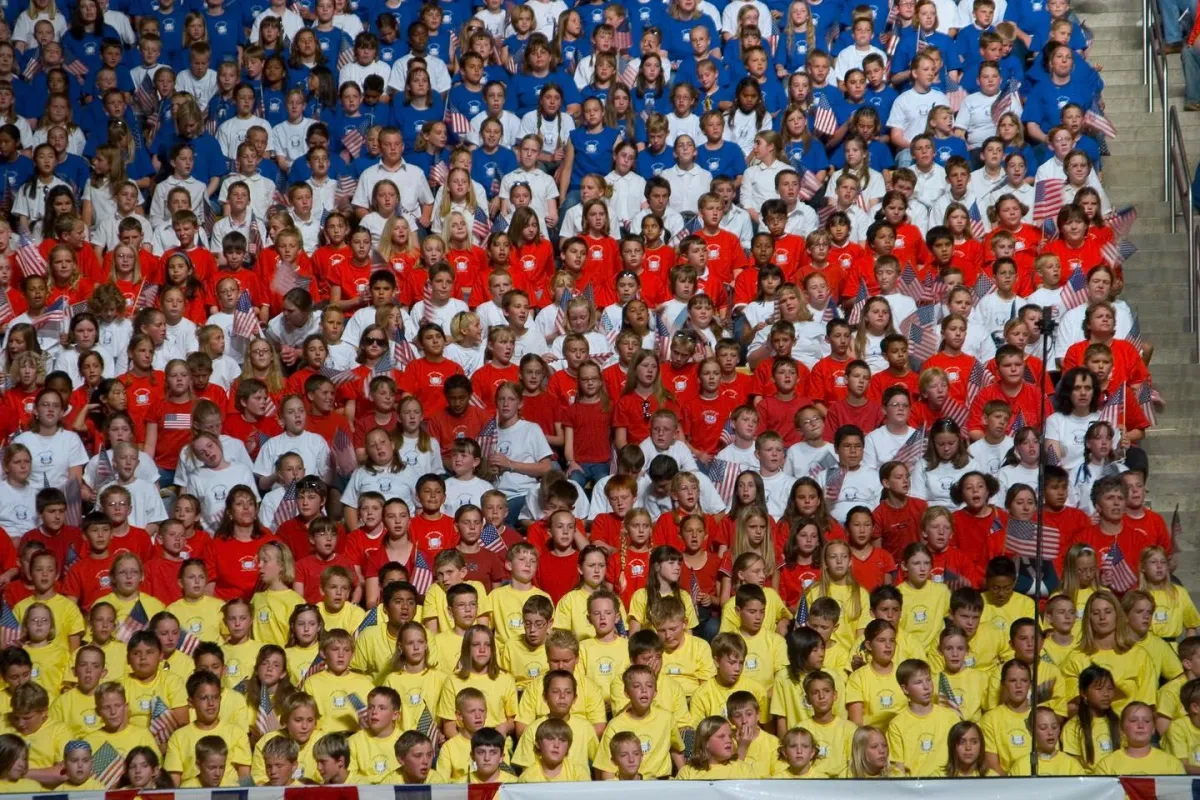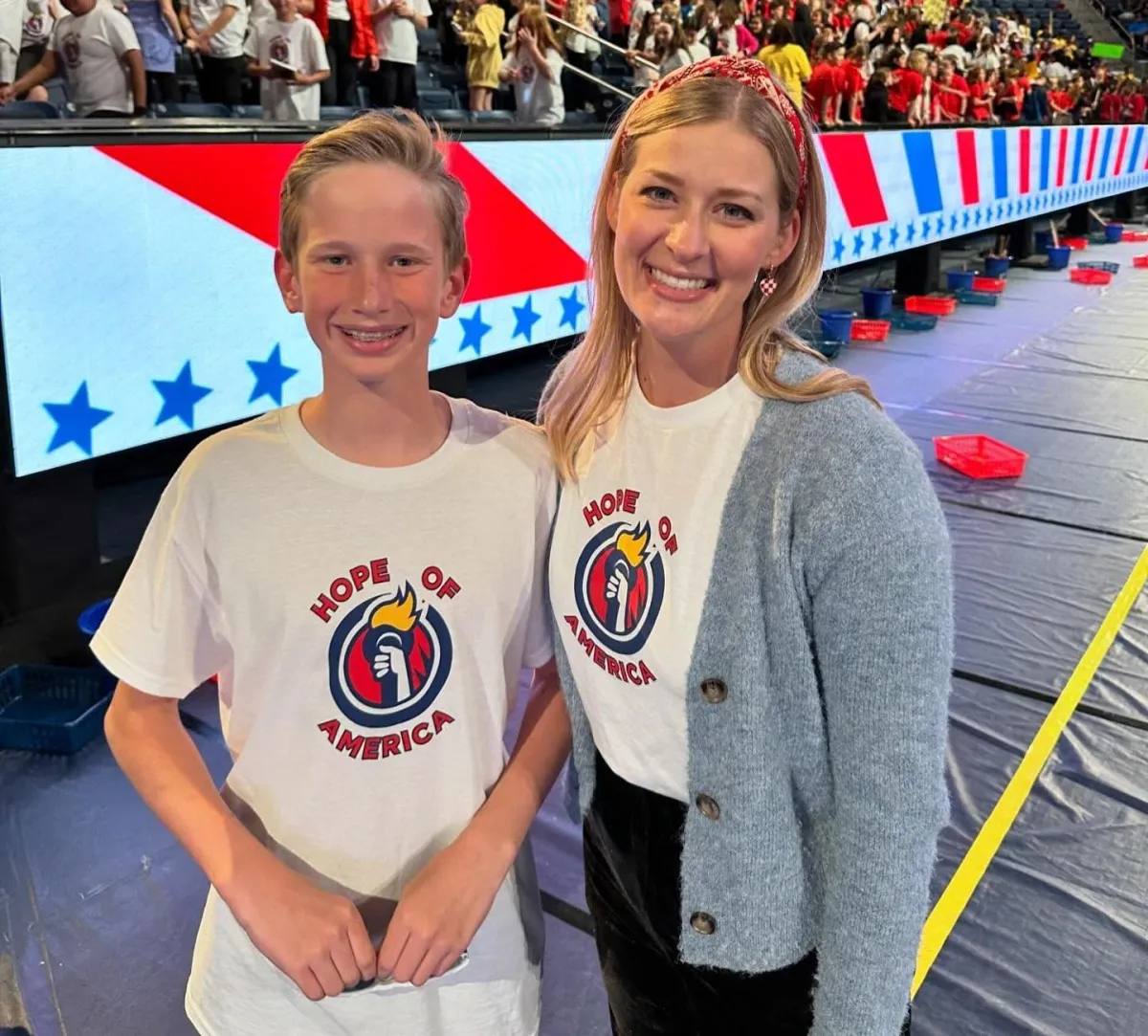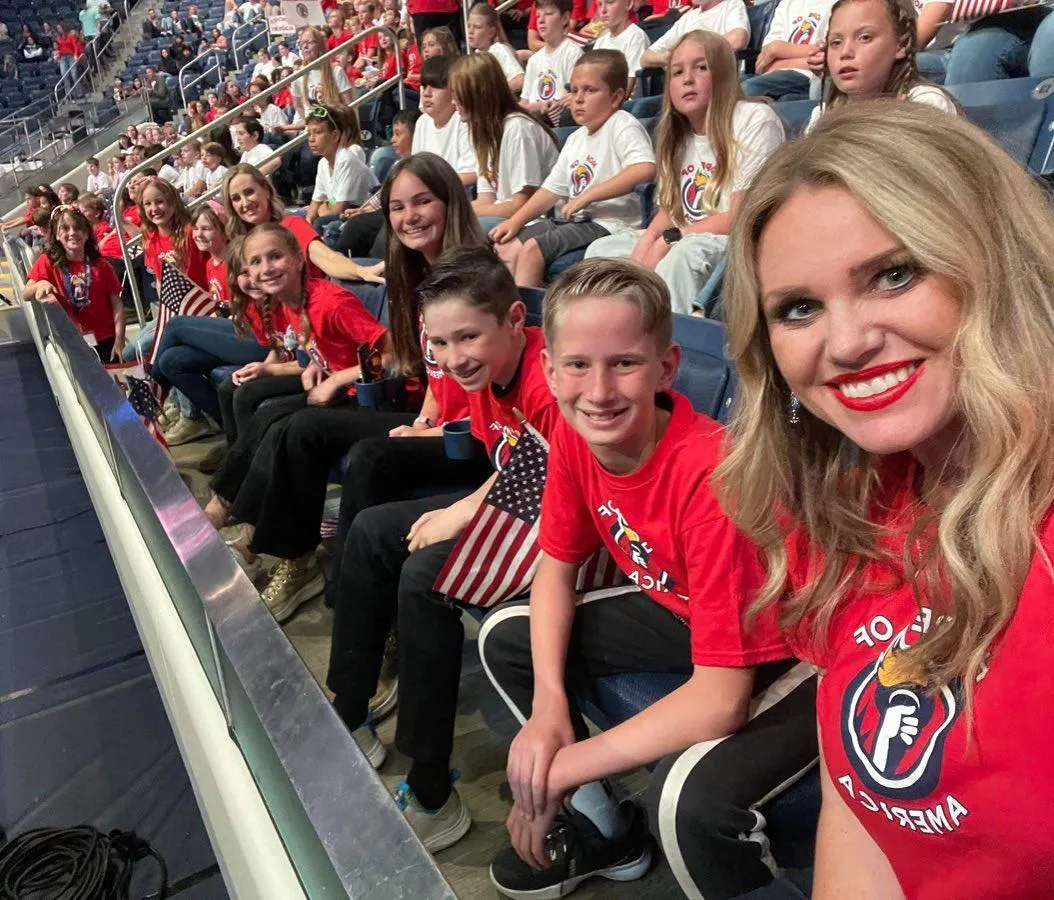Celebrating the Spirit of Freedom Through the Voices of Our Youth
Join us in honoring America’s past & empowering its future through song, service, & the spirit of youth.
About

Hope of America is an inspiring initiative that brings together over 100 schools in Utah to celebrate the core values that make America strong. Each year, fifth-grade students unite in red, white, and blue to form a giant American flag, symbolizing the unity and spirit of our nation. The program serves as a platform for teaching young people about the importance of patriotism, family, faith, and freedom.
Through their activities, Hope of America aims to foster a sense of pride and respect for our country, its history, and the ideals that define us. The organization strives to create a lasting impact by instilling values of gratitude, service, and community involvement in the next generation.

6K–8K Students Annually

Established in
1995

100+ Schools Participating

It's Community Favorite
Celebrating Over 25 Years of Inspiring Patriotism Among Thousands of Young Americans

6,000–8,000 Students Annually
Each year, between 6,000 and 8,000 school children from more than 100 schools participate in the Hope of America event.
Established in 1995
The program was created by Kathy McDonald in 1995 with the support of America’s Freedom Festival in Provo, marking over 29 years of celebrating American freedom
and unity.


100+ Schools Participating
More than 100 schools come together annually for this powerful
performance.
Community Favorite
The event is attended by over 10,000 parents, extended family, and military guests
each night, highlighting its popularity and community support.

Hope of America : A Nationwide Celebration of Patriotism
The "Hope of America" program is a distinguished event that unites students from various regions to honor
and celebrate the nation's core values through music and performance.
Utah County
Heart of the original Hope of America event
Thousands of 5th graders participate each year
Hosted at BYU Marriott Center in Provo
Features vibrant student-led performance.
Davis County
Strong and growing participation
Schools showcase patriotic spirit and unity
Community engagement through song and choreography
50 States
Inspired similar programs across the U.S.
Promotes national pride and civic responsibility
Unites students from diverse backgrounds
Celebrated as a model for youth patriotic education

Instilling pride, patriotism, and a deep respect for the ideals that
unite us all.

Bringing schools, families, and communities together to
celebrate the spirit of unity.

Teaching our youth the importance of faith, freedom, and responsibility through education.

Building strong, supportive families that nurture the next generation
of leaders.

Encouraging community involvement and service through volunteerism, making a lasting impact.

Providing opportunities for students to participate through generous sponsorships
FAQs
Your Questions Answered, Ensuring Clarity and Confidence
What is the Hope of America program?
The Hope of America is a patriotic event that brings together thousands of fifth-grade students from over 100 schools to perform songs celebrating hope, patriotism, and service. The performances take place over three days at the Marriott Center.
Who can participate in the Hope of America event?
The program is designed for fifth-grade students, as the songs and themes correlate with the fifth-grade state core curriculum.
How much does it cost for a student to participate?
The participation fee has been $10 per student for many years. This registration is typically paid online by individual parents directly to the Hope of America organization.
What materials are provided to participating students?
Each participating student receives a Hope of America T-shirt. Additionally, schools are responsible for providing an 8” x 12” flag for each student and teacher.

How can schools register for the Hope of America event?
Schools interested in participating can register through the official Hope of America website. It's recommended to review the FAQs page and download the Teacher Timeline to get an overview and outline of expectations.
